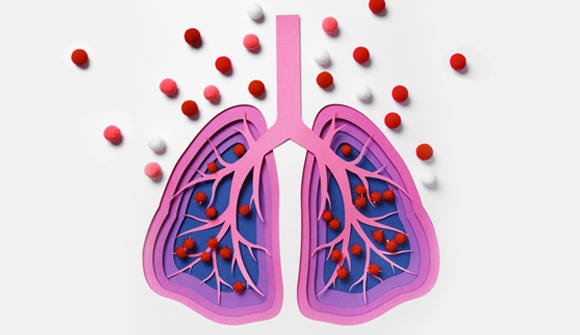Pneumonia protection
Who should get a vaccine?
Article Date:

Though we’ve had COVID-19 on the brain for the past two Groundhog-Day-like years, there’s another serious illness still claiming lives: pneumonia. And there's a vaccine for that disease, too.
“Pneumonia is an infection that inflames the air sacs in one or both lungs and can cause coughing, fever and shortness of breath,” explained Shalika Katugaha, MD, system director of Infectious Diseases for Baptist Health. “It can be a serious illness, especially in young children, people 65 and older, and people with other medical conditions. Bacteria, viruses and fungi can cause pneumonia.”
Symptoms may include:
- Cough that produces phlegm
- Fever
- Chills or sweats
- Painful breathing
- Fast heart rate
- Fatigue
- Confusion
- Nausea
- Vomiting
- Diarrhea
Sneeze and spread
“Bacterial and viral pneumonias are spread through inhalation of airborne droplets produced by coughing or sneezing. The most common cause of bacterial pneumonia in the U.S. is Streptococcus pneumoniae. Viral pneumonia is often caused by influenza, respiratory syncytial virus (RSV), and SARS-CoV-2 [the virus that causes COVID-19],” Dr. Katugaha said. “Typically, the body prevents potentially harmful particles in the air from infecting the lungs. In some situations, bacteria and viruses can overpower the immune system and cause pneumonia.”
Infection hazards
The highest risk groups are children 2 or younger and adults 65 or older. Other factors include hospitalization (especially in the Intensive Care Unit or on mechanical ventilation), chronic lung or heart disease, smoking, or a suppressed immune system.
Since viral infections weaken the immune system and can predispose you to bacterial pneumonias, Dr. Katugaha explained it’s important to stay up-to-date with the COVID-19 and influenza vaccines.
The potential complications of severe pneumonia are significant.
“It can lead to trouble breathing that may require hospitalization and supplemental oxygenation, or even a ventilator,” Dr. Katugaha said. “The bacteria can enter the bloodstream and spread to other organs. An abscess can develop if pus collects in the lung cavity, or fluid can accumulate around the lungs.”
Get your shot
The good news is, pneumonia can often be prevented.
“Vaccination can lower your risk and help protect you from complications, hospitalization and death,” Dr. Katugaha said. “If you’re 65 or older, you should be getting pneumonia vaccines. In special situations, individuals ages 19-64 with certain medical conditions or other risk factors, including immunocompromising conditions, are candidates for the pneumonia vaccines, too.”
Dr. Katugaha recommended asking your primary care physician for guidance.
“Some bacterial strains of pneumonia have become resistant to commonly used antibiotics, which is why preventing pneumococcal infection through vaccination is so important,” Dr. Katugaha said. “In the age of COVID-19, it's especially important to focus on optimizing lung health.”
Vaccines offer protection from preventable diseases like pneumonia. Baptist Health is here to help you find a primary care physician to provide the preventive care you need. You can schedule an appointment by calling 904.202.4YOU (4968).



